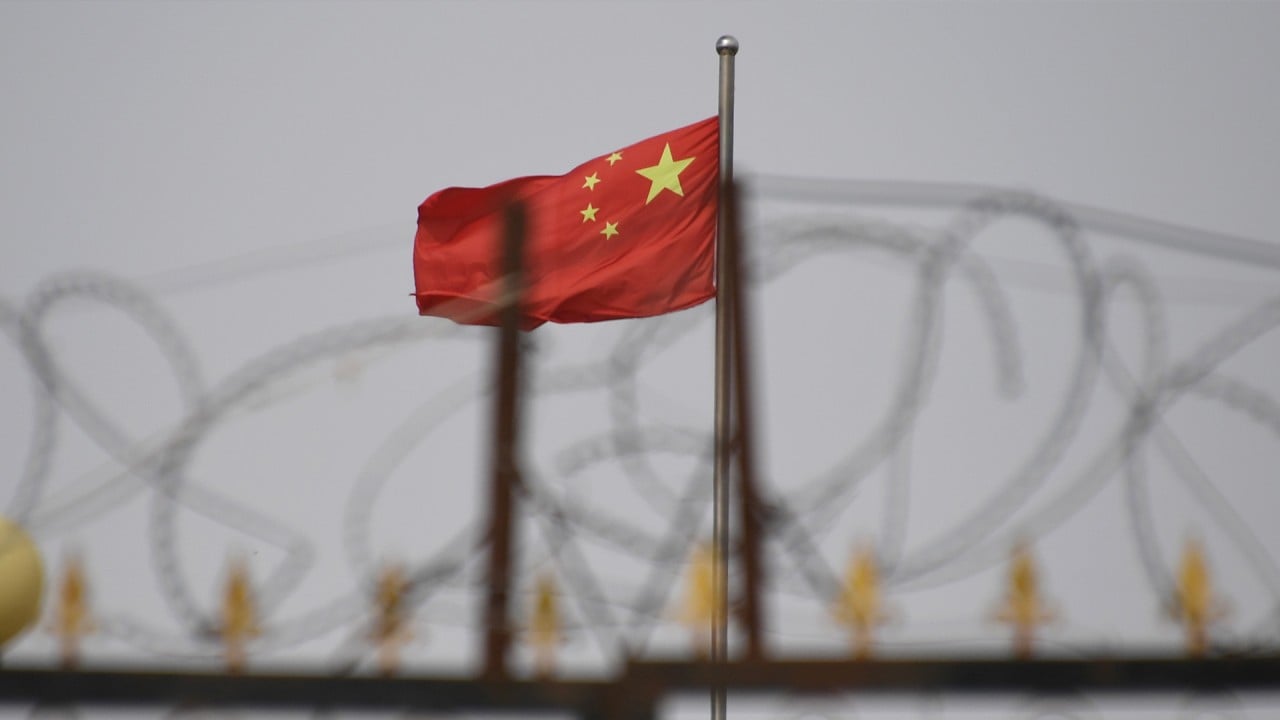
China celebrates four years without a violent terrorist incident
- ‘Battle against terrorism has continued to do well,’ spokesman for public security ministry says
- Safeguarding China’s political regime was the focus of ministry’s work in the 2013-20 period, he says
“The present situation is stable and harmonious as people enjoy security and a good living and work environment,” he said.
That state had been achieved as a result of a “high pressure approach” to fighting terrorism and the “successful implementation of the leadership’s new era governance strategy in Xinjiang”, he said.

Li said the focus of the ministry’s work over the past seven years had been “safeguarding the security of the regime and the [political] system”.
The ministry had “fought against infiltrations and subversion by foreign powers, as well as all kinds of political risks both online and offline”, he said, without giving any details.
Xinjiang ‘genocide’ claims are ‘fake news’, Chinese foreign minister says
Li did not mention the internment camps in Xinjiang, but it was about four years ago when Beijing began sending large numbers of Uygurs and Kazakhs to them.
Human rights groups have said more than 1.5 million Uygurs and Kazakhs were sent to the camps between 2017 and 2019, and accused China of serious abuses within their walls.
Beijing has repeatedly denied such allegations. In a white paper last year, it said nearly 1.3 million people in Xinjiang received “vocational training” every year between 2014 and 2019.
As the international backlash caused by the re-education camps in Xinjiang has intensified, Beijing has stepped up its defence by stressing the need to crack down on terrorist activities in the region.
Last month, the US, Canada, European Union and Britain imposed sanctions on various Chinese officials for their alleged links to human rights abuses in Xinjiang. Beijing retaliated with sanctions against American, Canadian and European officials and academics.
Leading Japanese ketchup producer Kagome has stopped importing tomatoes from Xinjiang.


